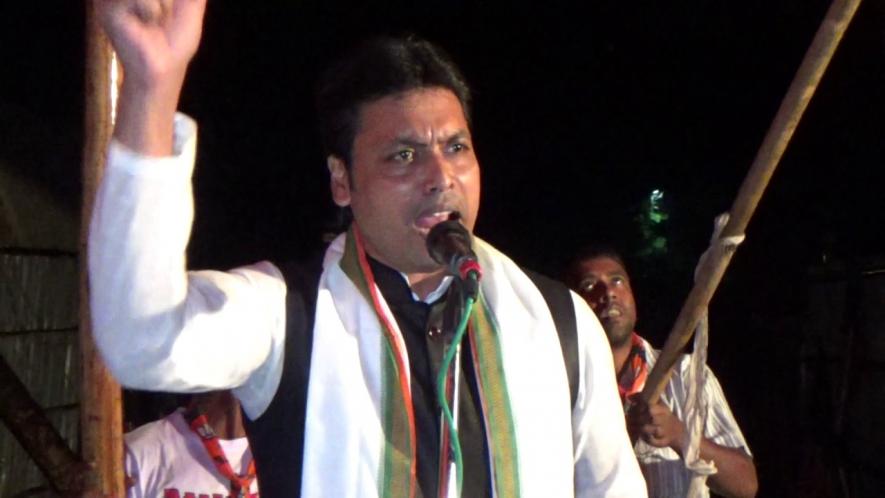Should Belief Triumph over Scientific Evidence?

An absurd statement on the advent of the internet was blurted out by the newly-elected Tripura Chief Minister Biplab Kumar Deb. Addressing a regional workshop on Public Distribution System, the CM claimed that the internet was invented hundreds of years ago and that the technology and satellites were present during the period of Mahabharata. The statement is yet another attack on the rational and scientific thought and bolsters the presence of a dangerous environment.
On April 14, a large number of scientists, academics and science policy analysts took to streets in about 35 cities across India to mark the International March for Science, demanding governments across the world to make evidence based polices. Under the pretence of promoting science, BJP has often been accused of propagating Hindu religious beliefs. The march was to voice the discontent of the scientific community with the current regime and policies. The organizers also demanded a hike in the R&D spending to 3% and education spending to 10%, both as fractions of the GDP.
However, one must question to what extent is the problem of spreading of superstitious beliefs in society related to the funds that are allocated by the government.
It seems that the national party in power is full of people who hold beliefs without any evidence, be it a junior minister of human resource development who mocked Darwin’s theory of evolution or our prime minister who made an unsubstantiated claim about the practice of cosmetic surgery and reproductive genetics in ancient times. These people act on beliefs that have very less or no scientific corroboration and also encourage others to share their beliefs. Philosophers, on the other hand, over the past 200 years, have developed some convincing responses to this phenomenon which include the epistemic responsibility we have regarding our beliefs. It brushes upon the area which necessitates questioning the beliefs we hold and the harm they can cause, and what responsibilities go along with having them.
An 18th century English mathematician and philosopher named W.K. Clifford in his most famous essay “The Ethics of Belief” argues that it is wrong always, and, everywhere for anyone, to believe anything upon insufficient evidence. Some might propose a counter-argument to this that an individual has a right to believe in whatever he wants to, as long as it doesn’t hurt anyone. This argument holds less value as Clifford argues that there is no such thing as a private belief. We all talk about our beliefs – some of us do it a lot – and it causes our belief to spread, which has the potential to harm others. We are morally obligated to refrain from such beliefs.
The concept of epistemic responsibility is significant in Indian politics as the belief system of our elected representatives is not only affecting the scientific discourse in our nation but also influencing the policies that are being formulated. It is the result of such article of faith only that a state government is planning to promote cow urine as a health drink.
Any blind faith leads a person to ignore other facts and arguments causing them to live an unexamined, unthoughtful life that Clifford describes as “one long sin against mankind”. For our politicians, there is an urgent need to inquire about the beliefs that they hold. Unfortunately, the responsibility of endorsing a more rational society, which reinforces scientific knowledge, lies on us.
Get the latest reports & analysis with people's perspective on Protests, movements & deep analytical videos, discussions of the current affairs in your Telegram app. Subscribe to NewsClick's Telegram channel & get Real-Time updates on stories, as they get published on our website.
























